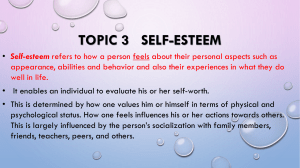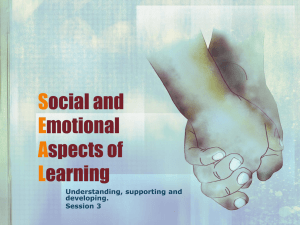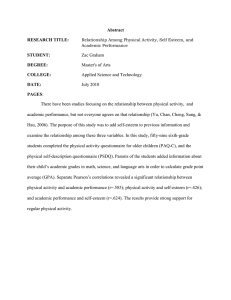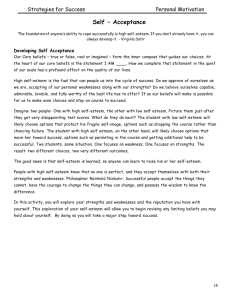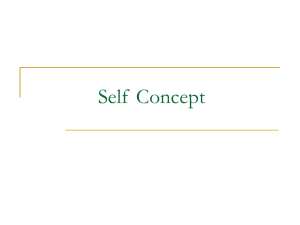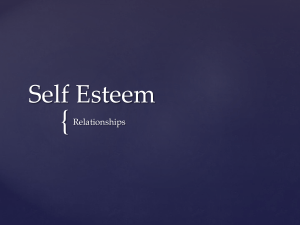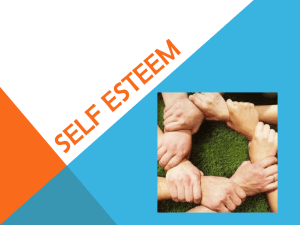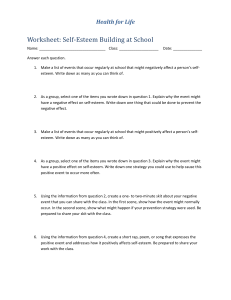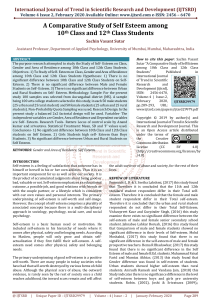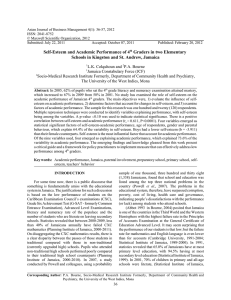Boosting Your Self-Esteem Theoretical background:
advertisement
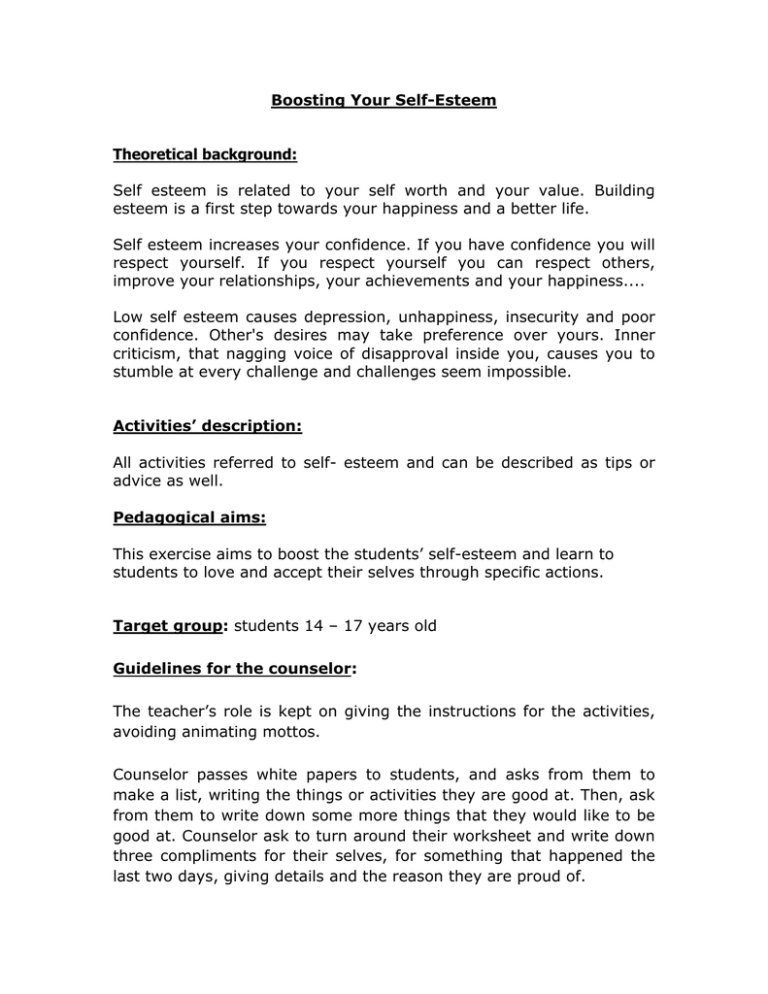
Boosting Your Self-Esteem Theoretical background: Self esteem is related to your self worth and your value. Building esteem is a first step towards your happiness and a better life. Self esteem increases your confidence. If you have confidence you will respect yourself. If you respect yourself you can respect others, improve your relationships, your achievements and your happiness.... Low self esteem causes depression, unhappiness, insecurity and poor confidence. Other's desires may take preference over yours. Inner criticism, that nagging voice of disapproval inside you, causes you to stumble at every challenge and challenges seem impossible. Activities’ description: All activities referred to self- esteem and can be described as tips or advice as well. Pedagogical aims: This exercise aims to boost the students’ self-esteem and learn to students to love and accept their selves through specific actions. Target group: students 14 – 17 years old Guidelines for the counselor: The teacher’s role is kept on giving the instructions for the activities, avoiding animating mottos. Counselor passes white papers to students, and asks from them to make a list, writing the things or activities they are good at. Then, ask from them to write down some more things that they would like to be good at. Counselor ask to turn around their worksheet and write down three compliments for their selves, for something that happened the last two days, giving details and the reason they are proud of. Of course it's normal for someone to have ups and downs in his/her feelings, but having low self-esteem isn't accepted. Feeling like you're not important can make you sad and can keep you from trying new things. It can keep you from making friends or hurt how you do at school. Having strong self-esteem is also a very big part of growing up. As you get older and face tough decisions - especially under peer pressure - the more self-esteem you have, the better. It's important to know you're worth a lot. Time: 45 minutes Resources needed: papers Here are a few activities that you can try to increase students’ self-esteem: • Make a list of the stuff you're good at. It can be anything from drawing or singing to playing a sport or telling a good joke. (f you're having trouble with your list, ask your mom or dad to help you with it.) Then add a few things to the list that you'd like to be good at. • Give yourself three compliments every day. Don't just say, "I'm so great." Be specific about something good about yourself, like, "I was a good friend to Jill today" or "I did better on that test than I thought I would." Tips: • Remember that your body is your own, no matter what shape, size, or color it is. If you are worried about your weight or size, you can check with your doctor to make sure that things are OK. Remind yourself of things about your body that are cool, like, "My legs are strong and I can skate really well." • • Remember that there are things about yourself you can't change. You should accept and love these things - such as skin color and shoe size - because they are part of you. When you hear negative comments in your head, tell yourself to stop. When you do this, you take the power away from the voice inside that discourages you. By focusing on the good things you do and all your great qualities, you learn to love and accept yourself - the main ingredients for strong selfesteem! Even if you've got room for improvement (and who doesn't?), realizing that you're valuable and important helps your self-esteem to shine. References Updated and reviewed by: David V. Sheslow, PhD, and Colleen Taylor Lukens, MA Date reviewed: July 2005 Originally reviewed by: D'Arcy Lyness, PhD

